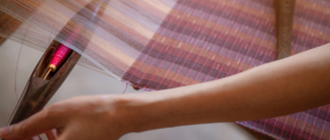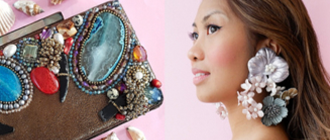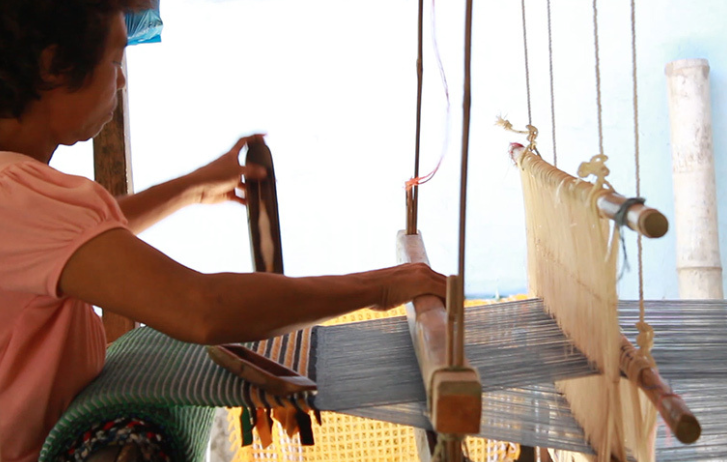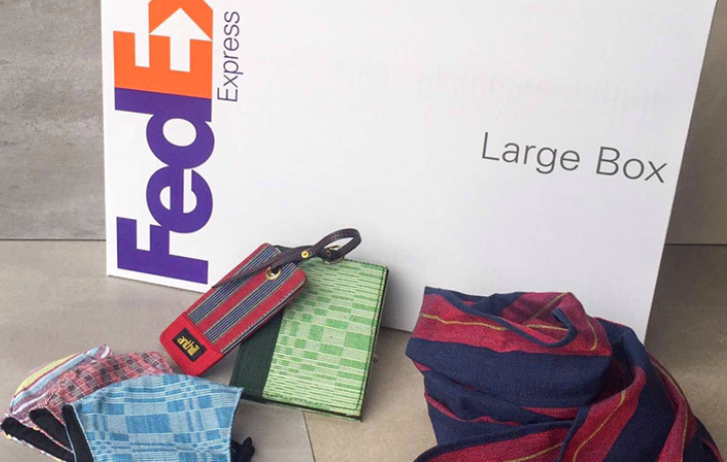
Traditional Filipino Textiles Finding New Fans Around The Globe
By FedEx | First published: November 10, 2020 Updated: November 13, 2024
Meet the social enterprise ANTHILL Fabric Gallery – a trailblazer for the Philippines’ indigenous textiles movement and a homegrown success story.
After years of neglect, indigenous Filipino textiles and weaving traditions are making a comeback.
Thanks to artisan businesses like ANTHILL, colorful, handmade fabrics unique to the Philippines are becoming popular all over the world.
As well as helping revive a forgotten culture, social enterprise ANTHILL champions circular manufacturing and sustainable fashion.
The social enterprise responsible for reviving the indigenous textile industry in the Philippines started out as one young girl’s dream.
Anya Lim, the visionary behind ANTHILL Fabric, was raised by culturally proud Filipino parents who owned a textile business. Anya grew up with bedtime stories about heroes from indigenous groups in the Philippines. Family vacations comprised of visits to local communities and weaving villages.
Today, many know ANTHILL as a fashion brand, with a colorful woven collection of clothes and accessories. But at its core, ANTHILL is a social enterprise that promotes Filipino culture through contemporary design.
Inspired by childhood village memories
Anya’s inspiration to start ANTHILL was sparked when she returned to a village in Banaue. Best known in the Philippines for its rice terraces, it had turned into a ghost town, with no trace of the “weaving, carving, and celebration of local culture” Anya had enjoyed as a child.
At that time, local weavers were given little to no mainstream recognition. Traditional patterns were mainly used for furniture and household products. The fate of weaving was uncertain, with younger generations unwilling to inherit the craft.
Before launching her business in 2010, Anya wanted to make sure that ANTHILL would have enough supply before creating a demand. The first five years of the enterprise’s operations focused on capacity building.
They sourced skilled weavers who remained passionate about traditional Filipino textiles, and ensured that their community partners were ready for business. They provided leadership and financial literacy skills training, with the end goal of making the weavers self-reliant.
From baby steps to blazing a new trail for Filipino fabric culture
ANTHILL's first big break was a partnership with an established local cafe chain, creating designs for barista uniforms and providing textiles for furniture upholstery. They were featured in the establishment's merchandise section for social enterprises. “This gave us credibility and allowed us to grow our visibility in communities like Abra,” Anya shares.
Since ANTHILL started, Filipino traditional weaving has made a resurgence. What was once a dying art has been revived by designers and entrepreneurs up and down the country. These vibrant patterns are incorporated into apparel, home decor, and other items admired and desired around the world. Today, these products play a key part in Philippine exports, meeting the fashion industry's demand for natural fabrics.
Today, ANTHILL’s biggest market is its global customers, making up between 80-90% of sales. Many of these clients, Anya says, are Filipinos living abroad who wish to connect to their roots and wear their identities
To fulfill the growing demand from around the world, ANTHILL began working with FedEx in 2017. "FedEx provided tremendous support for our global expansion," Anya says. "Without them, we would not be able to serve our international customers."
ANTHILL has struck up partnerships with businesses in Europe, United States, Hong Kong, and Japan. To better serve them at lower costs, Anya and her team worked with FedEx to consolidate international shipments.
"We crunched the numbers and came up with the costs and average rates that will fall within different locations and weight categories. This way, it's a win-win; our clients pay less on shipping, without affecting our bottom line."
Today, ANTHILL has branched out into made-to-order as well as wholesale. This additional demand is balanced by a close-knit community of 700 makers and artisans to meet supply, and a seamless logistics network to ship at scale.
A circular approach to communities and fashion
ANTHILL aims to “celebrate Filipino identity through heart-woven cloth, [transforming] traditional weaves into contemporary and zero waste design for everyday wear.”
This alternative approach to business is grounded by ANTHILL’s mission to keep the Filipino weaving traditions alive and provide sustainable livelihoods for local communities.
Environmental impact is also a priority. ANTHILL describes themselves as champions of circularity, manufacturing waste into new fabric. A circularity-based business model involves making every effort to lengthen the life cycle of a product to ensure environmental sustainability.
With the move to sustainable fashion brands growing in the Philippines, and a passionate re-embracing of Filipino artisan heritage and indigenous fabrics, ANTHILL is part of a promising wave of fashion talent that’s here to stay.
SHARE THIS STORY
- Generative AI: A New Frontier
- How To Ship A Giant Panda
- How To Make Freight Shipments Work For Your Small Business
- The Rise Of Intra-Asia Trade: Opportunities In The China-Southeast Asia Corridor
- Where Do Old Planes Go When They Retire?
- What’s So Dangerous About Coconuts? Your Guide To Dangerous Goods Logistics
Sign up now and save on your shipping rates!
Sign up now and earn discounts by shipping instantly with FedEx Ship ManagerTM at fedex.com.
Recommended For You

New Digital Opportunities For Filipino SMEs With E-Commerce
Amid the pandemic, many SMEs are pivoting their business models and moving online, in response to evolving customer demand and behavior.
Read More
How A Filipino SME Conquered The Global Luxury Packaging Scene
Filipina-led company Consummare are responsible for decadent, custom-designed boxes that house some of the world’s most prominent luxury brands.
Read More
Filipino Jewelry Brand Shines Bright On The Global Stage
Filipino jewelry designer Farah Abu shares how smart logistics and the e-commerce boom have catapulted her bold designs to international catwalks.
Read More

